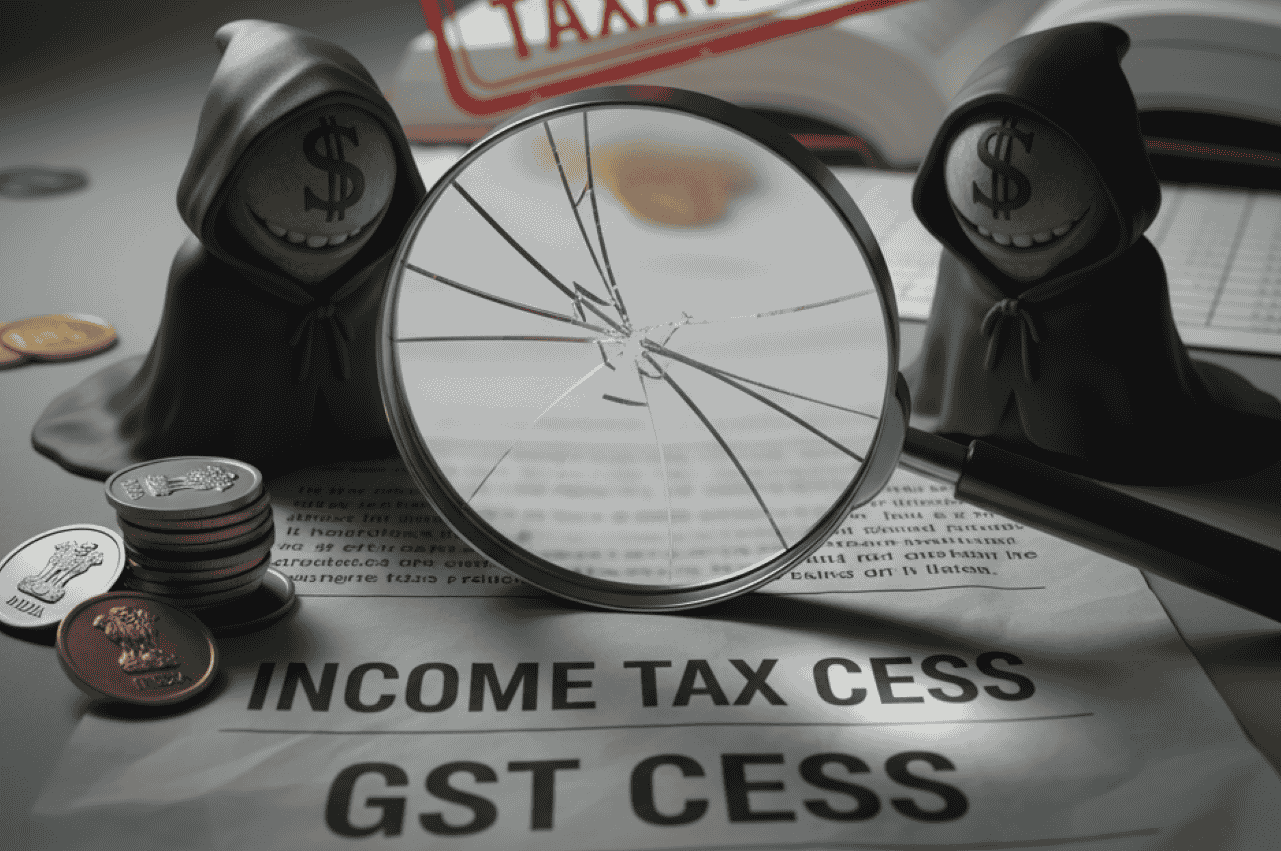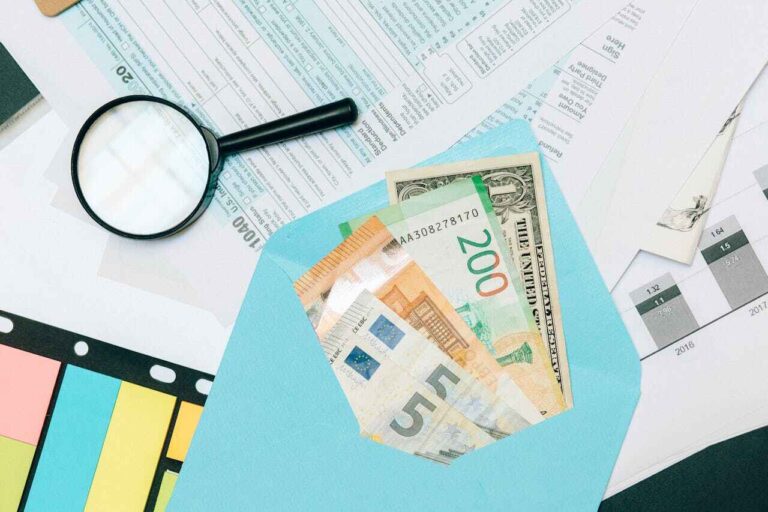If you’ve ever felt like Indian taxes are a secret club where the rules are written in some ancient alien language, you’re definitely not alone. Just when you think you understand your income tax, along comes cess to crash the party. “Cess? GST? Income Tax? Wait… is this a new spice for my dal or is my wallet under attack?”
Relax. By the end of this guide, you’ll not only understand the difference between Income Tax Cess and GST Cess, but you might even be able to explain it to your parents, your friends, or that nosy neighbor who always asks how much you earn.
Grab your chai, sit back, and let’s dive in.
What is a Cess, Anyway?
Before we split hairs, let’s get one thing straight:
A cess is like a special tax. Imagine the government saying:
“Hey, we need a little extra money for something specific—like building hospitals, schools, or taking care of luxury car buyers’ feelings. Let’s call it a cess.”
So, it’s not a new tax, it’s more like a top-up on an existing tax. Think of it as sprinkles on your ice cream—sometimes sweet, sometimes a little bitter, but always noticeable.
Income Tax Cess vs GST Cess: The Big Picture
Let’s break it down simply.
| Feature | Income Tax Cess | GST Cess |
|---|---|---|
| Definition | Extra charge on your income tax | Extra charge on GST for specific products |
| Purpose | Funds for social development (health, education) | Compensates states for GST revenue loss or taxes luxury/sin goods |
| Who Pays | Anyone who pays income tax | Consumers buying certain goods/services |
| Calculation | % of income tax | % of GST |
| When Paid | Annually (with tax filing) | At the time of purchase |
| Visible? | In tax return | In the bill |
| Real-Life Impact | Affects how much you pay at year-end | Directly increases product prices |
Fun Fact:
Did you know the word “cess” comes from the Latin word cessare, which means “to tax”? Yeah, taxes were confusing even in ancient Rome.
Income Tax Cess Explained
Alright, let’s talk Income Tax Cess.
Imagine you earn ₹10 lakh a year. You calculate your income tax and it comes to ₹1,50,000. Now, the government says:
“By the way, we also need a 4% Health & Education Cess.”
So, 4% of ₹1,50,000 = ₹6,000 extra.
Total Tax = ₹1,50,000 + ₹6,000 = ₹1,56,000
Notice something? You don’t see it every day. You only notice it when filing taxes. It’s like paying for extra toppings on your pizza after it’s already baked.
Why it exists:
The Health & Education Cess specifically funds:
- Hospitals
- Schools
- Skill development programs
So, technically, your money is doing good… even if it doesn’t feel like it when the tax notice arrives.
Myth vs Fact: Income Tax Cess
| Myth | Fact |
|---|---|
| “Cess is a separate tax.” | Nope! It’s a portion of your existing tax, not an entirely new tax. |
| “Only rich people pay cess.” | Wrong! Everyone who pays income tax pays it, regardless of income. |
| “Cess can be avoided.” | No shortcuts here. It’s automatically calculated in your tax return. |
GST Cess Explained
Now, GST Cess is where your shopping wallet starts sweating.
GST (Goods and Services Tax) is already on most products you buy, from toothpaste to TVs. But some items, like luxury cars, tobacco, and aerated drinks, have GST Cess.
Example: You buy a luxury car for ₹50 lakh.
- GST = 28% = ₹14 lakh
- GST Cess 15% on GST = ₹2.1 lakh
Total Tax = ₹16.1 lakh
So, when you see the price tag, your eyes pop out, and you think:
“Whoa! Did I just buy a car or a small country?”
Why it exists:
- Compensate states for revenue losses after GST implementation
- Tax luxury or sin goods to reduce consumption
Fun Fact:
India introduced GST Cess to make luxury items more expensive, and apparently, the idea was:
“If you’re buying a yacht, you can afford a little extra tax too.”
Income Tax Cess vs GST Cess in Real Life
Here’s a simple way to remember it:
| Scenario | You Notice | Effect |
|---|---|---|
| Income Tax Cess | Only during tax filing | Your total tax goes up a bit |
| GST Cess | When buying certain products | The price of your item jumps |
Common Myths About Cess
- “Cess is optional.”
Nope. It’s like gravity. You can’t dodge it. - “Cess is wasted money.”
Partially true… but mostly it goes to schools, hospitals, and infrastructure, so your money does some good. - “Cess is huge, I’ll go bankrupt.”
Relax. It’s usually a small % of your tax or GST. Only luxury items or very high income pay a noticeable amount.
Humorous Analogy to Remember
Think of taxes as a burger:
- Income Tax = the patty 🍔
- Income Tax Cess = cheese slice 🧀
- GST = the bun 🍞
- GST Cess = extra sauce for luxury toppings 🌶️
You don’t always notice the cheese or sauce, but they make a difference in the end.
Quick Recap
- Income Tax Cess → small extra on your annual tax, funds social development
- GST Cess → extra on certain product prices, mostly luxury/sin goods, compensates states
- Income Tax Cess → affects your bank account during tax filing
- GST Cess → affects your wallet instantly at the shop
Fun Example: “Meet the Cess Family”
Imagine a quirky family:
- Mr. Income Tax – serious, always talking about salary and deductions
- Mrs. Income Tax Cess – polite, small, but always adds a few rupees extra
- Mr. GST – loud, loves shopping, charges everyone at the mall
- Ms. GST Cess – stylish, appears only at luxury stores, makes shopping a tiny painful adventure
Every time they meet, your wallet is a little lighter, but society is a bit richer.
Table: Who Pays What
| Cess Type | Who Pays | How Much | When |
|---|---|---|---|
| Income Tax Cess | Taxpayers | % of tax (usually 4%) | During tax filing |
| GST Cess | Consumers | % of GST (varies, e.g., 15%) | At purchase of certain goods |
Key Takeaways for Beginners
- Don’t panic when you see “cess” in bills or tax forms.
- Income Tax Cess – affects tax filing, not daily shopping.
- GST Cess – hits your pocket instantly on luxury items.
- Cess is usually small but meaningful. It funds education, health, and state compensation.
- Remember the burger analogy – Burger🍔 + Cheese Slice 🧀- it makes learning fun.
The Key Point –
In the world of taxes, Income Tax Cess and GST Cess are like those sneaky little siblings: they appear quietly, sometimes annoy you, but in the end, they help society function.
Next time you file your taxes or buy that luxury car, smile a little, because somewhere a school, hospital, or a state’s treasury is benefiting. And you? You now know exactly what’s going on.





